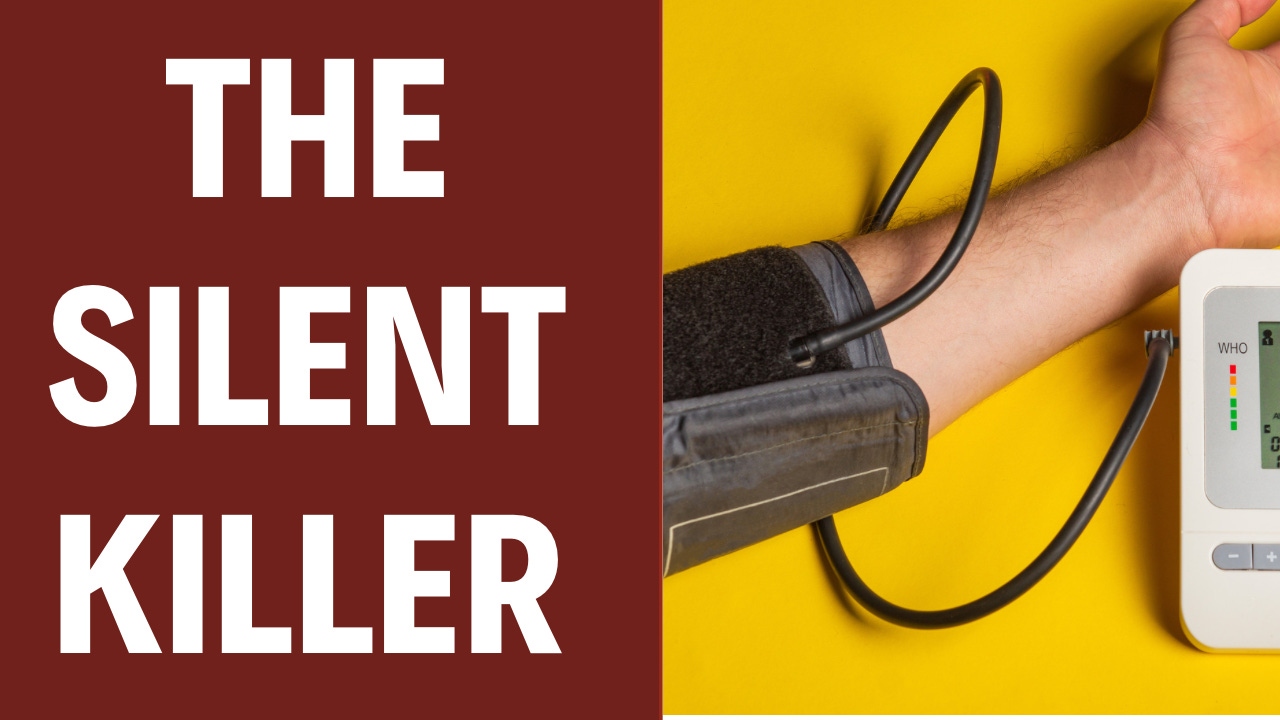Hypertension, The Silent Killer. Actions to take Now!
The Real Story Behind Stress, Blood Pressure, and What You Can Do About It.
We all know stress is bad for us… but did you know it’s actually one of the biggest triggers for hypertension?
The truth is, managing stress can be the key to controlling high blood pressure. All the other things—diet, exercise, even salt—play a role. But if you don’t get your stress under control, those lifestyle changes may not be enough. Hypertension is more than a numbers game; it’s deeply connected to your emotional state.
What Is Hypertension?
Hypertension, or high blood pressure, is when the force of your blood against your artery walls is consistently too high. Currently, hypertension is diagnosed at levels of 130/80mm Hg or higher. For some, even slightly lower readings can be dangerous, especially if you have other health risks.
Think of it like a hose under too much pressure—it can only take so much before it starts to wear down. The heart has to work extra hard, and eventually, things start to break.
Who Gets Hypertension?
The truth is, hypertension doesn’t play favorites. But certain groups are at higher risk:
• Age: Over 40? Your risk is higher.
• Gender: Men tend to develop it earlier, but after menopause, women catch up.
• Race: African Americans are more likely to develop it—and often at younger ages.
• Family History: If your parents had it, you’re more likely to get it.
• Lifestyle: Stressful life? Sedentary? Smoking or heavy drinking? Your risk skyrockets.
Made in Canva by author
How to Take Your Blood Pressure Correctly
If you’re taking your blood pressure at home (which I highly recommend), here’s how to do it right:
• Sit quietly for five minutes before taking a reading. Don’t rush it.
• Use a properly fitted cuff (too tight or too loose gives inaccurate results).
• Keep your arm at heart level—resting it on a table is perfect.
• Avoid bathing, caffeine, smoking, or exercise for 30 minutes before measuring.
Physicians suggest that people take their blood pressure at home on a “regular basis” and bring those readings to their appointments.
Many people have “white coat syndrome” and physicians state that even if they have a high blood pressure in the office- that’s not enough evidence to say you have hypertension. And most physicians do not want to treat it with medication first, they look at lifestyle and “current stress levels” present in the patient’s life.
Types of High Blood Pressure
1. Primary Hypertension: This is the most common type and develops over years due to lifestyle factors or genetics.
2. Secondary Hypertension: This is caused by another medical condition, like kidney disease, or as a side effect of medications.
3. Resistant Hypertension: When blood pressure remains high despite taking medications, it’s called resistant hypertension. It’s tricky to manage and needs a closer look by a doctor.
Signs and Symptoms of High Blood Pressure
Hypertension is often called the “silent killer” because it doesn’t show many obvious symptoms… until it’s too late. But if you experience any of these, it could be a red flag, so please contact your physician.
Severe headaches (persistent and pounding)
Dizziness or shortness of breath- especially after mild exercise
Swelling of the ankles or legs, especially during the day
For more information including complications of untreated hypertension, non-medical treatments (lifestyle and holistic), medications and final thoughts ⬇️





